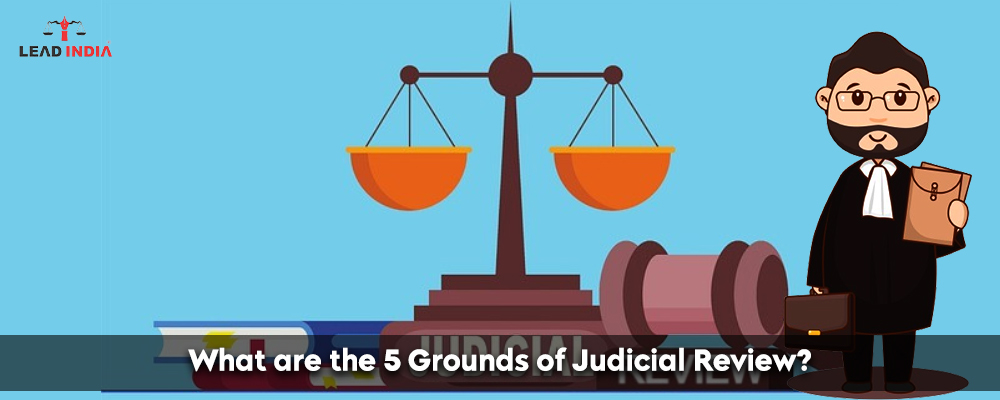An essential component of the Indian legal system is judicial review, which gives the courts a way to examine the decisions and actions of the legislative and executive arms of the government. The Constitution of India does not specifically specify the power of judicial review; instead, it derives from a number of clauses, principally Articles 13 and 32 or 226 depending on whether the matter concerns legal rights or fundamental rights. Over the years, court interpretations have changed the parameters and justifications for judicial review in India.
Need A Legal Advice
The internet is not a lawyer and neither are you. Talk to a real lawyer about your legal issue

5 Grounds of Judicial Review
Error of Jurisdiction:
- The ultra vires doctrine also applies to this. The course of action undertaken exceed the authority granted by the law. Either an incompetent authority, a competent authority acting beyond its authority, or a competent authority acting unlawfully carried out the action.
- Possessing jurisdiction entails having decision-making authority. Error in jurisdiction refers to the exercise of powers that exceeded the authority granted. This may occur from going beyond the authority granted, from a lack of jurisdiction, or from the abuse of jurisdiction. If any action was taken in error of jurisdiction, it may be deemed ultra vires.
- If a body has no jurisdiction over a subject matter, it can be said to lack jurisdiction. The action was taken due to lack of jurisdiction if the act or order that resulted in the formation of the body failed to delegate the jurisdiction and the court did.
Proportionality:
- To achieve the goal of the action, the decision shouldn’t be overly broad or too narrow. The course of action needs to make sense. The measure ought to be appropriate for the action’s goal.
- The action must be adequate to accomplish the goal and must only slightly restrict people’s rights. The action cannot unnecessarily negatively impact civil liberties and rights. It is not appropriate for the penalty to be wildly out of proportion to the offense.
Procedural Impropriety:
- Procedural fairness is a cornerstone of the Indian legal system, and any deviation from established procedures can invite judicial scrutiny.
- Procedural impropriety as a ground for judicial review focuses on the fairness and transparency of the decision-making process. If a decision is tainted by bias, arbitrariness, or a failure to follow prescribed procedures, it can be challenged in court.
- The judiciary ensures that decision-makers adhere to the principles of natural justice, which include the right to be heard, the right to a fair and unbiased decision-maker, and the right to a reasoned decision.
- Any violation of these principles may render the decision null and void. This ground emphasizes the importance of due process in administrative actions, preventing authorities from acting arbitrarily and ensuring that individuals have a meaningful opportunity to present their case.
Irrationality:
- The ground of irrationality allows the judiciary to review administrative decisions based on their substantive merits.
- If a decision is so irrational that no reasonable person could have arrived at it, the courts have the authority to set it aside. This ground is closely connected to the concept of Wednesbury unreasonableness, derived from a famous British case.
- In Indian jurisprudence, the courts assess the reasonableness of administrative actions by examining whether they are arbitrary, capricious, or violate the principles of fairness and justice.
- This ground ensures that administrative decisions are not only procedurally fair but also substantively rational, preventing the abuse of discretion by public authorities.
Legitimate Expectations:
- When someone is made to feel as though an administrative action would adhere to a specific process. The person had a legitimate basis to base the expectation on, even though it might not have been strictly legal.
- There are two scenarios in which the doctrine is applicable. The first scenario is when someone or a group is led to believe that a specific plan of action will be carried out.
- The second scenario arises when an individual or entity is dependent on regulations or guidelines that previously governed a specific domain of managerial operations.
- Making administrative authority answerable for its words and deeds can be achieved in part by doing this.
For any type of legal assistance, one can speak with a lawyer from Lead India. Lead India provides free online legal advice in India. With Lead India, one can ask free online questions of the experts in addition to getting free legal advice.





 Talk to a Lawyer
Talk to a Lawyer